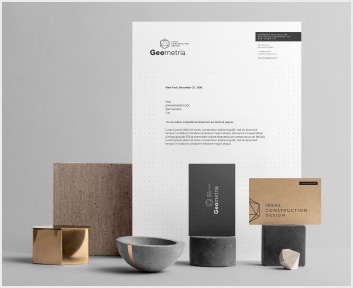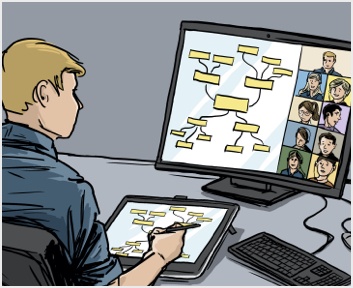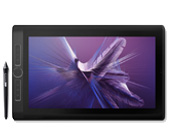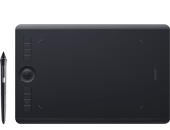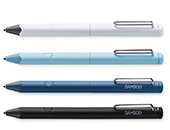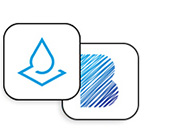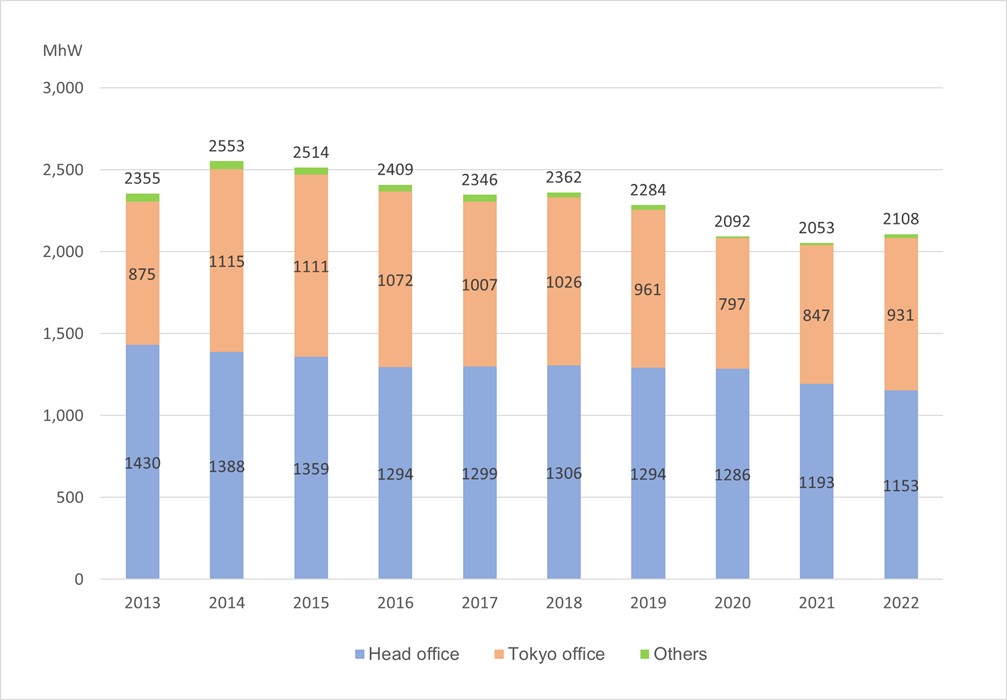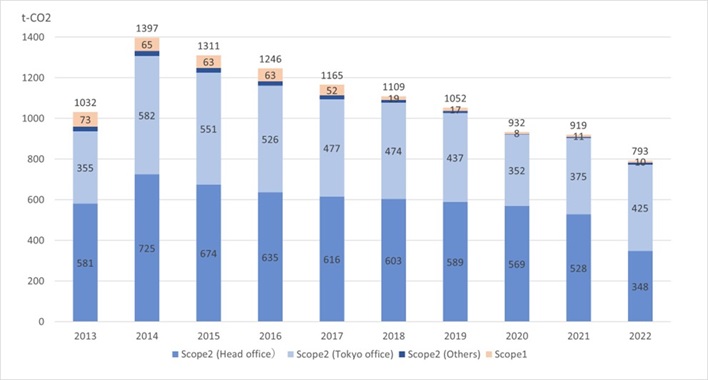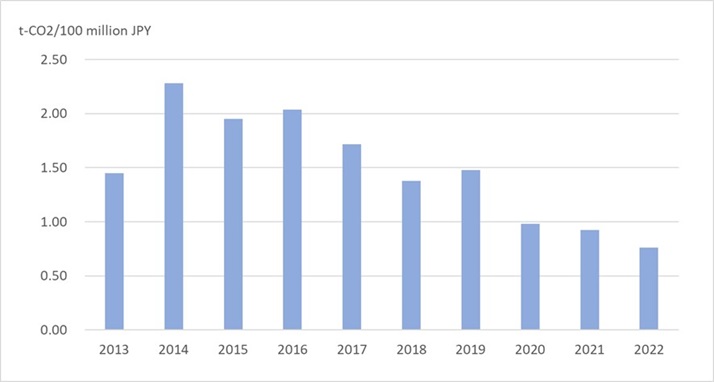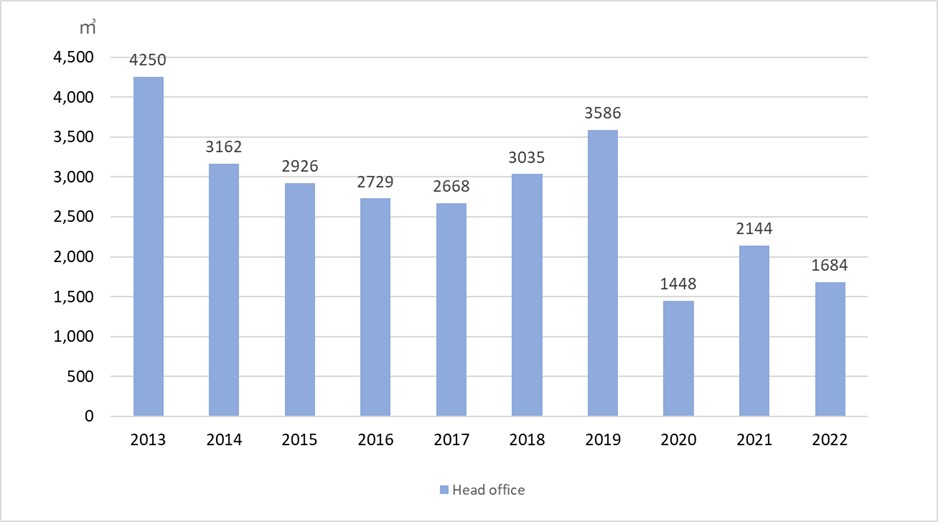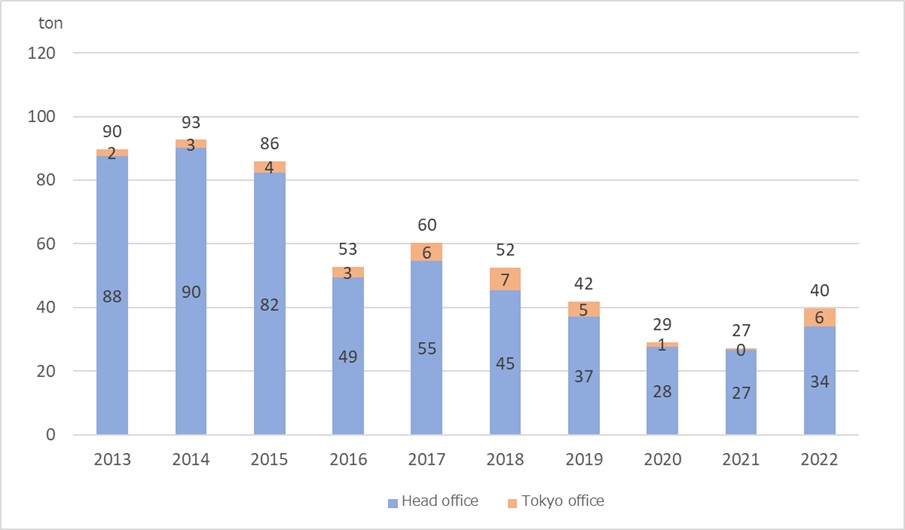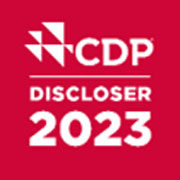Environmental Activities
Wacom strives to reduce the environmental impact of its business activities and makes effort to create products and technologies while also considering thinking of their environmental sustainability.
|
Wacom’s Quality and Environmental Policy
Together with our customers, users and partners in community, Wacom, a technology leadership company, is committed to continuing the limitless journey in the world of creativity paved with Digital Ink, as well as the pursuit of meaningful growth of human beings and society. Through our core technologies and our progressive approach toward quality control, we offer innovative products and services, which contribute to social development, and make the power of handwriting and drawing more meaningful than ever. In the belief that the beauty of nature can be preserved and passed on to future generations together with the cherished memories, we strive to make a sustainable world a reality through development of eco-friendly products and our unique approaches. We pledge to comply with relevant laws and regulations, and to continuously improve our management system.
June 2nd, 2021 Wacom Co., Ltd. Nobutaka Ide, President & CEO
|
[back to top]
About ISO9001/ISO14001
Wacom is driving continuous improvement by establishing a management system so that all the employees shall be involved in the quality and environment management.
Current certification status
ISO9001
| Site Name | Certification Body |
Certificate Number | Expiry Date | Revision Date |
| Head Office | Bureau Veritas Japan Co., Ltd. | JP024490 | April 17, 2027 | Feb 14, 2024 |
| Tokyo Branch |
ISO14001
| Site Name | Certification Body |
Certificate Number | Expiry Date | Revision Date |
| Head Office | Bureau Veritas Japan Co., Ltd. |
JP024491 | March 16, 2027 | Feb 14, 2024 |
| Tokyo Branch |
Product Compliance about Hazardous Substances
Wacom has established “Wacom Environmental Quality Guideline” which specifies environmental requirements regarding hazardous substances that are contained in Material, Parts and Products. It also prescribes restrictions on the Materials themselves and certain chemicals used in manufacturing. Suppliers are required to disclose information about the content of certain substances in their Deliverables according to the guidelines. Wacom also encourages our Suppliers to control chemical substances properly engaging their subcontractors and suppliers.
As Wacom produces electronic products which are sold globally, Wacom makes all the products compliant with the regulations of each country where the products are meant to be sold, such as EU RoHS, EU REACH, China RoHS, Japan J-Moss, India E-Waste, etc.
Recycling Initiatives
Wacom complies with recycling laws and regulations in the countries where it sells the products, including the EU's Waste Electrical and Electronic Equipment Directive (WEEE Directive), state recycling laws on waste electrical and electronic equipment in the US, India's recycling laws (E-Waste), etc.
Response to Climate Change
Climate change derived from global warming has become a serious problem on a worldwide scale. There is a growing trend towards acceptance, embracement, and implementation of ESG*¹ /SDGs*² policies every year in many countries, municipalities, and companies. Every country will set reduction targets on greenhouse gas emissions after 2020 based on the Paris Agreement and promote the introduction of renewable energy sources and development of eco-friendly products and/or services.
Wacom recognizes climate change as an important issue in environmental management. We are promoting the reduction of greenhouse gas emissions and conduct of business activities with careful consideration of possible risks and opportunities in our business environment brought about by climate change. We are also promoting a Business Continuity Plan (BCP) in response to the possible risk that our activities may be restricted by an increase in natural disasters such as floods. In addition, we are reinforcing our organization structure based on the recognition that the development of eco-friendly products could be an opportunity. Furthermore, we ask our partner companies to review, approve, and follow the Wacom Suppliers Code of Conduct, which could lead to CO2 emission reduction in the whole value chain.
We started to disclose information based on the TCFD recommendations on June 1, 2023. Click here for more information.
|
Environmental Performance
Electricity consumption (Japan)
• The graph shows the data on electricity consumption in all offices in Japan
CO2 emissions (Japan)
• Scope1 is calculated from the gasoline consumption of company cars and LPG consumption for the company cafeteria kitchen at the head office.
Specific energy consumption per unit (Japan)
• CO2 emission (Scope1 and Scope2) per 100 million JPY revenue for reference.
Water consumption (Japan)
• The graph shows the data on the water consumption for the head office. The data for other offices is not available as per the building owner’s regulations.
Waste (Japan)
• The graph shows the data on the total weight of industrial waste, general waste, and valuable resources from the head office and Tokyo office; calculated value is within the scope of ISO 9001/14001 certifications. |
|
Environmental Performance Data(Global)
[Supplemental remarks] • Some medium-sized offices with several dozen staff members, in Bulgaria(Sofia)and Korea(Seoul)cannot provide CO2 emissions data because of administrative rules of the buildings they lease. • In Germany, Dusseldorf office purchases electricity with zero emission factors, and their CO2 emissions are regarded as zero. This makes Germany’s total CO2 emissions smaller than the one of U.S., which has almost same-sized office as Germany. • In the “Water consumption” section, the offices marked with “- “ cannot provide data for such reasons as they do not have water meters for each floor.
GHG Scope3 emissions
CDP Score CDP is a UK-based non-governmental organization engaged in activities to promote information disclosure on environment at the request of corporate investors and companies. If corporate investors and purchasing companies want to know the environmental impact of investment destinations or client companies, they can become members of CDP and request information disclosure through CDP's questionnaires. Companies that receive a request can answer the questionnaires through CDP, and the contents will be evaluated on a scale of A, A- to D, D- (4 levels/8 steps). Wacom has been submitting CDP questionnaires every year since 2019. In 2023, we improved our climate change score by one level (two steps) and achieved a B, which is higher than the global and Asian average of C, and higher than the Electrical & electronic equipment sector average of C.
|
|||||||||||||||||||||||||||||||||||||||||||||||||||||||||||||||||||||||||||||||||||||||||||||||||||||||||||||



